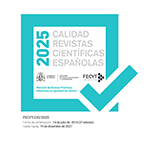The effects of intensive naturalistic exposure for children in pre- and post-literacy development
Abstract
This paper reports on a case study of the language acquisition of two children through intensive exposure and subsequent language loss after the immersion period. The informants experienced intensive language development through immersion in a new language (English) over a period of eight months. One of the main features under analysis is the fact that at the time of immersion one of the informants had developed no literacy skills in the mother tongue due to his early age (3.5), whereas the second subject (6.9) had developed literacy skills in the L1 before onset. The informants' linguistic development in their L1 and their advances in the L2 were analysed from a qualitative point of view, and quantitative data was gathered regarding the time of exposure to the L2. The analysis carried out in this study suggests that the previous development of literacy skills may play a key role.Downloads
Article download
License
In order to support the global exchange of knowledge, the journal Complutense Journal of English Studies is allowing unrestricted access to its content as from its publication in this electronic edition, and as such it is an open-access journal. The originals published in this journal are the property of the Complutense University of Madrid and any reproduction thereof in full or in part must cite the source. All content is distributed under a Creative Commons Attribution 4.0 use and distribution licence (CC BY 4.0). This circumstance must be expressly stated in these terms where necessary. You can view the summary and the complete legal text of the licence.









